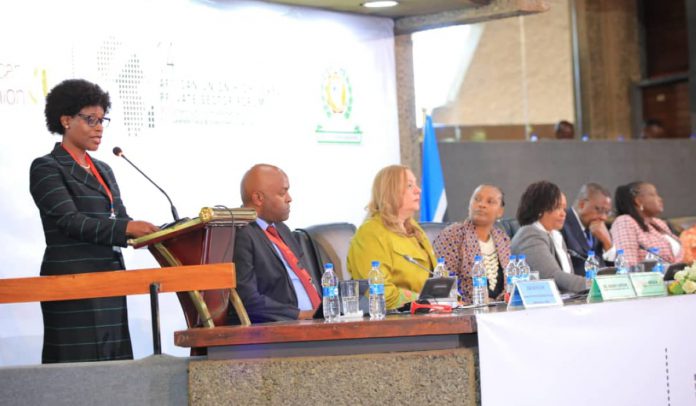Business people and officials are gathering in Nairobi, Kenya for the 14th African Union High-Level Private Sector Forum which seeks to strengthen linkages between regional and continental markets for increased trade and investment under the African Continental Free Trade Area (AfCFTA).
The three-day forum kicked off on July 10 under the theme “Public-Private Sector Engagement for Inclusive Growth and Sustainable Development while Deepening Regional and Continental Trade and Investment towards Implementation of AfCFTA”.
It runs through July 12 and is expected to draw more than 500 participants from Africa and beyond.
It is held by the African Union (AU) Commission in collaboration with the East African Community (EAC) Secretariat.
Specific objectives of the forum include leveraging the AfCFTA to promote regional value chains and increase productive capacity; enhancing the role of women and youth in regional and continental development; leveraging trends in digital transformation to enhance trade and investment; and exploring strategies to address barriers on access to finance.
“Demographically, you look at Africa as one country that has of 1.3 billion people, and by 2050, we are looking at how we can have 2.5 billion people. We have, unfortunately, a high youth unemployment rate of 40 percent, and it’s expected to escalate by that time [2050],” said Job Wanjohi, the Head of Policy Research and Advocacy at Kenya Association of Manufacturers.
He called upon the private sector “to ensure we make a positive effect in terms of employment on the Continent” through investments in education, health, women and girls, and digital innovations.
Citing the African Development Bank estimates as provided in the Africa Economic Outlook of 2023, Annette Ssemuwemba, the EAC Deputy Secretary General in charge of Customs, Trade and Monetary Affairs, said that Africa will require about $1.3 trillion annually to meet its sustainable development needs by 2030, and thus achieve green growth, which she said are huge numbers.
She indicated there are many challenges that could impede Africans from harnessing the opportunity presented by AfCFTA, which include low industrialization on the continent.
“Limited industrialization is one of the reasons intra-Africa trade is still very low. Studies have established that Africa will need its own unique approach to industrialization. Policies must increasingly account for the ways that industrialization is changing including the rise of digitalization, changes to organizational modes of production and the geographic distribution of production,” she said.
According to the organisers, dismal investment inflows, trade barriers, access to finance, climate change, high cost of transport, level and efficiency in production, diverse regulations, slow implementation of the agreed commitments in the various trade agreements (both regional and continental), coupled with low awareness of investment and business opportunities that ultimately limit trade and investment.
Information from the AU shows that AfCFTA is the world’s largest free trade area bringing together the 55 countries of the African Union (AU) and eight Regional Economic Communities (RECs).
The overall mandate of the AfCFTA is to create a single continental market with a population of about 1.3 billion people and a combined GDP of approximately $3.4 trillion.










